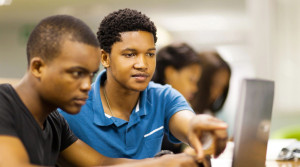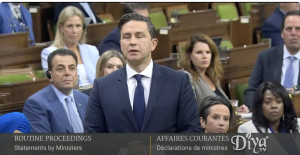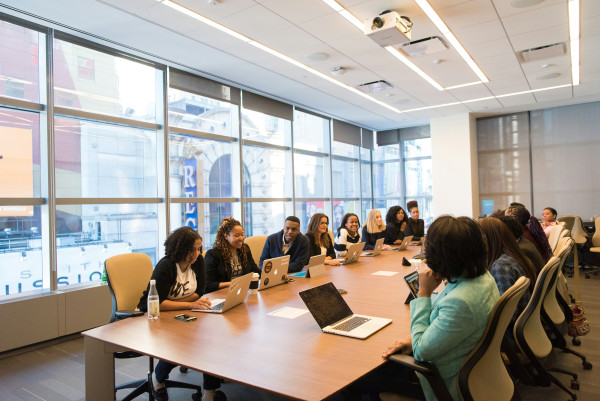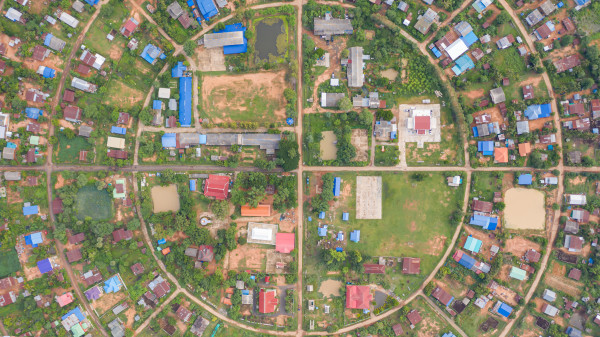Summer is a tough two months for parents who don’t have the means to send their kids to camp or other engaging activities. Many children spend much of the summer at home on their phones or watching TV. These kinds of activities only add to the problem of summertime lesson loss (SLL). SLL is a statistically significant problem among children not actively engaged during summer.
According to researchers, SLL is the process by which children lose about a month of education over the two months of summer. David M. Quinn, Assistant Professor of Education at the University of Southern California, poured over years of data to show how detrimental summer is to years of learning. His findings can also be contextualized in a post-pandemic world. As both behavioural and learning outcomes have dropped across the board since the pandemic, it's highly likely our youth will suffer more from SLL.
This school year, the Ontario government has implemented its ‘back to basics’ plan to improve education. The new shift in education policy has been part of the Conservative's agenda for a while and is finally coming to a school near you. Officially named the Better Schools and Student Outcomes Act, the legislation focuses on getting back to the basics of education: strengthening reading, writing, and STEM disciplines.
For upper years, the concentration is on job skills and apprenticeship. The act will require school boards to be transparent with their education plans and testing, give the government a stronger presence in setting achievements, and allow student teachers to become supply teachers. The Ontario government says these changes prove the government is listening to parents and bringing ‘common sense’ back to education by wrestling control from school boards to empower the province to decide how children should be educated.
Against a backdrop of possible teacher union strikes, a failed new reading assessment and behavioural issues affecting schools, this new back-to-basics plan is a small, out-of-touch and awkwardly worded policy. Given the challenges facing our kids, this policy does not seem to have a real focus. But let us get into it:
Apparently, Equity is Not Common Sense
Baked within the new back-to-basics approach are some massive assumptions that tell us exactly what the Ford government feels is wrong with schools. The most obvious one is in the wording of the policy ‘back to basics, and ‘bringing common sense’ (a phrase used by officials); all these phrases are a pretty high-key bash of earlier education plans. In 2009, the Ontario government mandated all 72 school boards to develop a policy on equity and inclusive education. Diversity, Equity and Inclusion (DEI) initiatives were seen to solve the failure of racialized students, especially Black and indigenous kids. The plan had three (also very awkwardly worded) actions:
- The ministry provides direction, support, and guidance to the education sector so that every student has a positive learning environment in which to achieve his or her highest potential;
- Each school board to develop and implement an equity and inclusive education policy and guidelines for the board and its schools; and
- Each school is to create and supports a positive school climate that fosters and promotes equity, inclusive education, and diversity.
Without a direct quote, it’s hard to say this was the policy the government was referring to as not common sense, but it’s likely. While Western nations like the U.S., Australia and Canada have a history of multiculturalism, their systems and assumptions are based on European culture. But for much of the world, equity is a very common sense approach to dealing with a multiethnic polity.
Nations like India and Kenya have, from inception, been multiethnic. Go to countries that embrace multiple cultures, like most African countries; you will find that embracing culture and inclusion is common sense. My years in Kenya’s private school system involved learning numerous languages, engaging in the anthropology of several ethnicities/tribes and even celebrating several religious occasions like Christmas, Ramadan and Holi. In these countries, equity is not controversial but an understood ideal meant to bring diverse nations like Nigeria or Indonesia together. Yet, in Ontario, they want to do away with it all and return to the old ways.
While equity as a practice is essential in a multicultural society, it doesn't mean that the 2009 policy is effective in helping kids. The Ford government is correct in revisiting these policies. The general list of policies we can call DEI has mixed results at best. One of the biggest projects in that DEI era was the Afrocentric School, an alternative school in Toronto that focuses its curriculum on Black achievement. The school has seen lower enrollment since its inaugural year. To be fair, alternative schools often face these problems. Based on 2011-12 report cards, the Afrocentric school passed the TDSB average for math but lower for reading and writing. Although these results are not a stellar endorsement of the radical program, the confidence it instills in students is well documented.
A wider study of DEI policy in the TDSB as a whole reported that equity policy was “non-performative” (as in not performing stated tasks) and failed to address systemic inequities in the education system. The authors cited that policy functioned mainly to protect the educational institution from liabilities like ruined images and lawsuits rather than challenge inequities. This puts the Black community in a rather tight spot. The Conservative's disdain for any smell of DEI is evident in their wording and shows their bad faith in the goal of inclusion, yet they are not the only bad-faith actors. The previous education policy may have been painted in the language of inclusion, but in reality, the province gave institutional cover to school boards from discriminatory lawsuits and image damage. These revelations show the need for change, but reverting to our old education system is illogical. Today's’ problems in education need modern solutions, not yesterday’s ideas. But what are today's problems?
What's the Matter With Schools
Regarding education, Ontario still sits above much of the world. Someone needs to remind the Conservatives. In 2019, Ontario was second in all of Canada in math. Another report found that Ontario kids also came second in Canada for reading. To be the second best in both categories, in a country that is already top ten worldwide, is far from a failure. This is not to say Ontario and Canada should not aim to be first, but rather the government's constant wringing on getting back to math and reading does not hold up to the reality: the kids are doing alright, comparatively.
The Ford government has been pushing a return to education the way it has worked since the Industrial Revolution. But the problems facing Ontario today are part of bigger issues that society wasn't facing in 1923. The influence of social media, growing social isolation and the ravages of the pandemic are dramatic problems no amount of multiplication tables will solve. People for Education, a non-partisan organization, tracks the public education system in Ontario, and since the pandemic, they have found unsurprising but still shocking revelations in their OSS 2021–22 Report:
“Data illuminate a system—and the individuals inside of it—on the brink of breakdown. Students, educators, and school boards across the province have been pushed to their limits, with inadequate resources and little respite.”
The report itself is a scathing indictment of our government and education. The report highlights mental health issues with students and staff, from kindergarten to the principal. The authors mention the role resource mobilization played in inequities between more affluent students vs. poorer, often BIPOC students. They note how a student's ability to access extracurricular activities was greatly important during the pandemic. An idea that aligns with SLL literature. Imagine turning sixteen in 2020 and spending the next two years trapped largely indoors. The fallout from our decisions is being felt in the maladaptive behaviours of our youth. Washroom fights, threats and fear are running schools these days. The OSS report ends with a call to give schools more resources to deal with situations. They also note the absence of any real plan in the province. “Ontario, and the other provinces and territories, need to be proactive and set a clear vision for pandemic recovery to send a message to young people and educators across the province that they have not been forgotten.”
Ontario has set aside $24 million for school safety, which will go to assets such as psychologists and education assistants. Not only is the money too little, but it comes without a cohesive plan to improve mental health or safety in any transparent way.
What Should We Do About Schools?
Taken altogether, the government's actions seem well-intentioned. Everyone wants their kids to have a good education, but their chosen policies are detached from the problems facing our youth. The government's response to the pandemic and its long-term effects on Ontario’s youth is to push the country’s second-smartest province to achieve more academically. I am all for apprenticeship and transparency, but the Ford government is not dealing with the issue at hand. One of those is how the province treats its teachers. The saga between the government and unions is full of instances of disrespect, such as the reading assessment criteria debacle. Using their role as educators against them, the Ford government tries to pit teachers against parents by constantly referring to their ideological goals as ‘just listening to parents.’ The idea that we want students to improve but are not meeting the needs of teachers is counterproductive. Teachers and students would be best served by providing a safe space to learn and grow.
Safety is the most important thing for success. No teacher can teach, and no student can learn in a chaotic environment that lacks structure and respect. One school in Louisiana was dealing with a similar case of extreme disciplinary issues and came up with a smart solution. Dads. After a massive fight was caught on social media, the school sat down and had the real conversations that needed to happen. The solution they came up with was Dads on Duty, a program where local, mainly Black men, started hanging out in halls. "We're dads. We decided the best people who can take care of our kids are who? Are us," Michael LaFitte, who started Dads on Duty, said. It is a pretty simple idea. No one understands boys like men, and education is a women-dominated field, a gender imbalance hardly ever mentioned. The dominance of women, especially in early education, can lead to the overrepresentation of boys, especially Black boys, in disciplinary cases, according to studies.
Having more Black and Brown men in some of our schools could be a great community effort that matches old heads in the neighbourhood with schools that could use the male presence. This would also give teachers the much-needed support they need. Educators have had to deal with all the problems in the education system on top of everyday adult worries like affording housing and food. It is time for all of us to support the people supporting our youth. In October, teachers may very well go on strike. If the government actually cares about kids, it will give teachers their asks. A little solidarity with our teachers can also go a long way when negotiations happen.
Reading some of the problems in high schools across the province is disheartening for teachers and students. Without safety, there is not much else that can be done for kids. But safety is not the only issue. Once our schools can provide a fruitful environment to learn, we then need to ask why should kids learn. Is it just about getting a career? Is it for their well-being? Is it to build morality? The basics of education were always about prepping kids to work in factories or simple service work. Nothing is basic about our current world of quantum computers, artificial intelligence and economic and political radicalism. We need extraordinary kids for our extraordinary times.

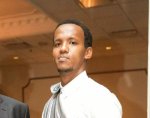 By
By 

